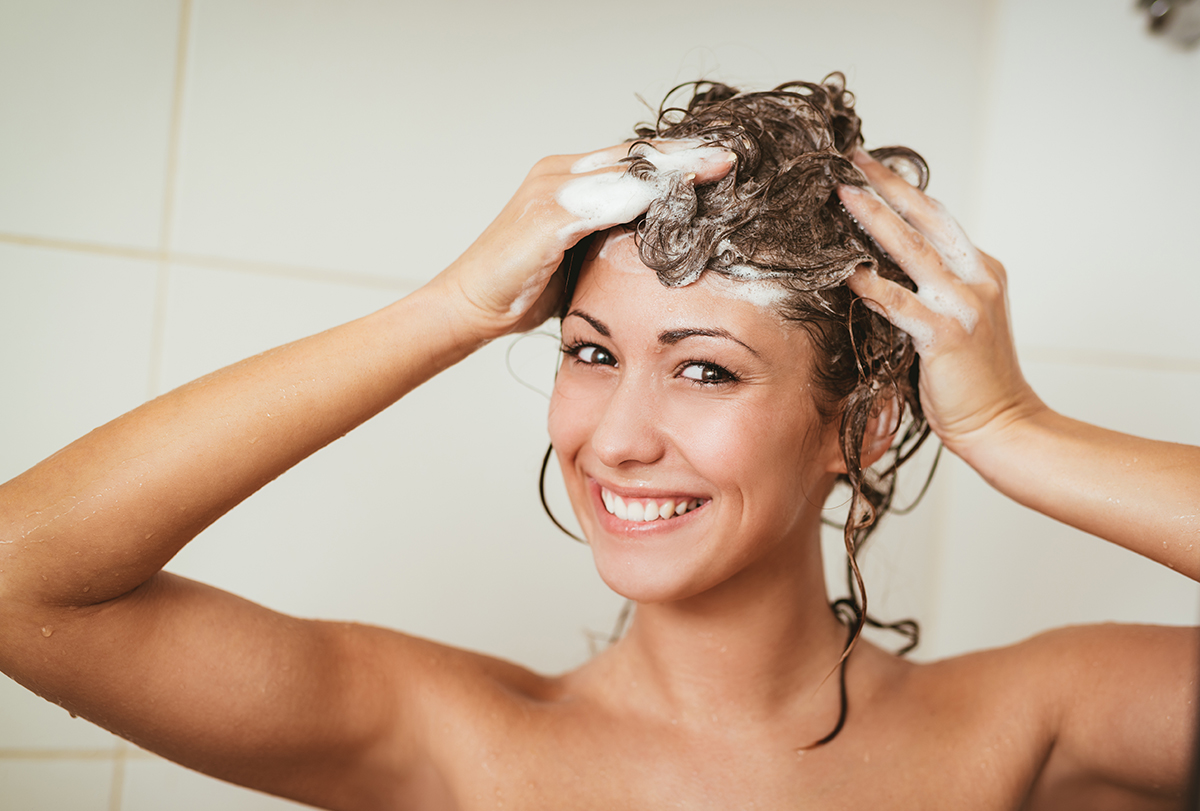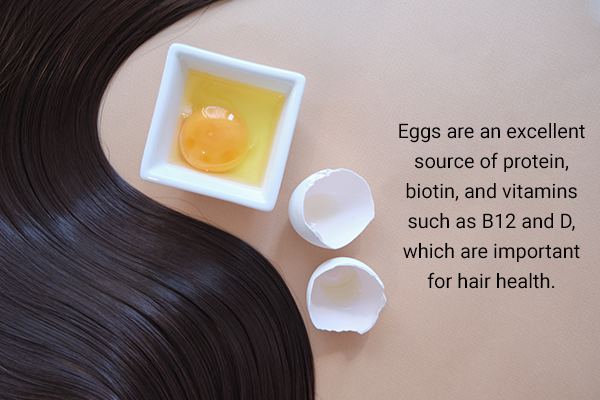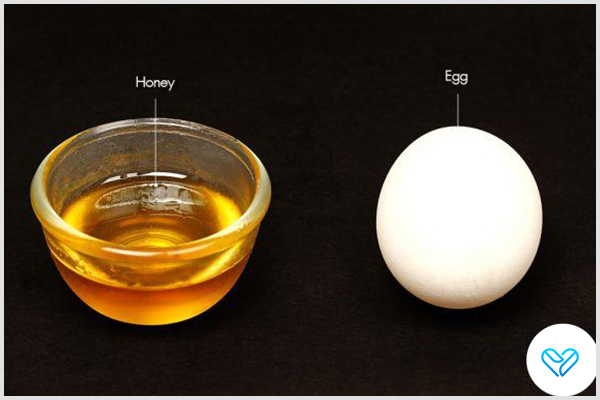In this article:
Hair is a vital component of a person’s appearance, and keeping it healthy is important for both men and women. Many people use natural ingredients such as eggs to nourish their hair and make it strong, thick, and shiny.

Eggs are incredible sources of protein, which is necessary for hair growth and rehabilitation. Eggs also contain biotin, which improves hair health and reduces hair loss. (1)(2)
However, applying eggs to your hair can be a messy and challenging process, and washing it out can be tricky.
This article will discuss the benefits of using eggs on hair and how to wash them off properly.
Ways to Wash Hair After Applying Eggs
Here are some ways you can wash away eggs from your hair after application.
1. Warm water and clarifying shampoo rinse
The simplest way to clean the hair after applying eggs is to wash them well using a clarifying shampoo, which is specifically designed for deep cleansing the hair using strong cleansing ingredients. (3) This may be the easiest method.
- Rinse your hair thoroughly with warm water to remove any excess egg from your hair and to make it easier to wash.
- Apply a small amount of shampoo to your hair and massage it into your scalp.
- Wash your hair entirely with cold water.
- Use a generous amount of conditioner on your hair, concentrating on the ends.
- Leave it on for a few minutes, and then wash it off with cold water again.
2. Apple cider vinegar rinse
To remove any remaining egg residue from your hair, rinse it with a mixture of water and apple cider vinegar (ACV). The acidity of ACV enables you to get rid of any egg residue, leaving your hair clean and refreshed.
- Mix ACV with water in a 1:4 ratio
- Pour it over your hair.
- Gently massage it into your scalp for a few minutes.
- Rinse it off with cold water.
Note: Remember to always dilute ACV with water, and do not use it straightway on your hair as it can be irritating.
3. Lemon juice rinse
The acid in lemon juice may help with the breakdown of egg components, leaving your hair clean and fresh.
In fact, in a study that examined home remedies for hair, lemon was a commonly used ingredient, suggesting the presence of anecdotal evidence for its use in hair care. (4)
- Squeeze 1–2 lemons into a bowl.
- Dilute the juice with water.
- Wash your hair with the lemon-water mixture.
- Pour the lemon juice over your hair, covering all strands.
- Rub it gently on your scalp and hair.
- Rinse completely with cool water.
Benefits of Applying Eggs on Hair

According to one study, eggs are excellent sources of protein, biotin, and vitamins such as B12 and D, which are important for hair health. The study highlighted the various positive effects of eggs on hair, including strengthening and thickening of the hair, reduction of hair loss, and promotion of hair growth.
The study also noted that the application of eggs on hair has been a traditional practice in East Asian countries for centuries and has been gaining popularity in other parts of the world due to its effectiveness.
Overall, the study supported the claim that eggs are good for hair and can contribute to the improvement in its overall health and appearance. (2)
How to Use Eggs for Your Hair
Eggs are a popular ingredient in hair care. Here are some ways you can use eggs for your hair.
1. Egg mask
Beat 1–2 eggs and put them on your hair, from the roots and all the way to the lengths and ends. Let it sit for about half an hour, and then wash your hair with cool water and shampoo like you always do.
2. Egg and olive oil treatment
Olive oil is a beneficial hair oil due to its ability to penetrate the hair shaft and moisturize the hair.
A study suggested that the use of olive oil can help improve the overall health of hair by reducing breakage, increasing shine, and improving manageability. (5) Moreover, the antioxidants present in olive oil can help safeguard the hair from any harm due to free radicals.
Mix 1 egg with 1–2 tbsp of olive oil and use it on your hair. Wrap your hair in a shower cap and leave it on for half an hour. Wash your hair with cold water and shampoo as you do. (5)
3. Egg and yogurt mask
Yogurt contains probiotic bacteria that can have a positive impact on overall health, including hair health.
A study suggested that probiotics can aid in regulating immunity and lessen inflammation, which lead to improvements in skin and hair health. Additionally, the nutrients found in yogurt, such as protein and vitamin B5, are beneficial for hair growth and strength.
Mix 1 egg with ¼ cup of plain yogurt and apply the mixture to your hair. Let it sit for half an hour, then rinse it off with cold water, and then shampoo your hair. (6)
4. Egg and honey treatment

Honey possesses antibacterial and antifungal properties that make it an effective treatment for seborrheic dermatitis and dandruff.
A study suggested that the use of honey on the scalp can reduce inflammation and itching and promote healing of damaged skin. Overall, the study supported the claim that honey is good for the hair and can contribute to improving scalp health and reducing dandruff.
Mix 1 egg with 1–2 tbsp of honey, and apply the mixture to your hair. Let it stay for a few minutes, preferably 30 minutes at least, and wrap your hair with a shower cap. Lastly, wash your hair using shampoo. (7)
Who Should Not Apply Eggs on Hair?
While eggs are generally considered safe and beneficial for hair, there are some people who should avoid using them on their hair.
People with egg allergies should not use eggs on their hair as they can experience an allergic reaction, which can lead to symptoms like itching, redness, and swelling. Anyways, It is always best to talk with a professional like a doctor before employing any products on your hair. (8)
Final Word
To conclude, applying eggs on hair is an effective way to nourish and strengthen hair but washing them afterwards is an essential step.
It is important to note that individuals who are allergic to eggs should avoid using them on their hair. By following the steps and tips in this article, you can enjoy the benefits of using eggs on your hair and achieve healthier locks.
- Was this article helpful?
- YES, THANKS!NOT REALLY


